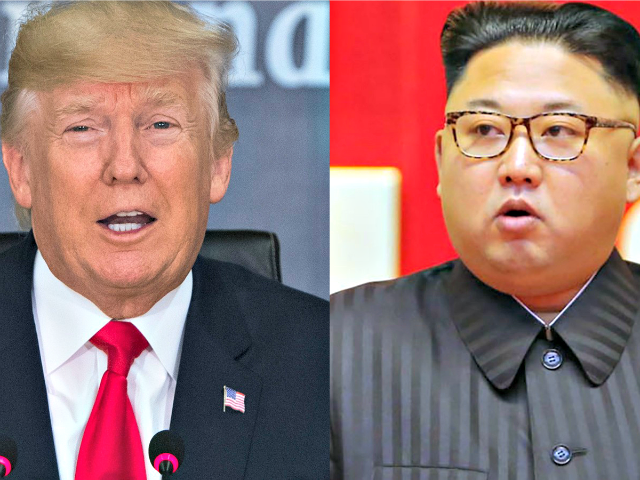South Korean President Moon Jae-in on Monday urged the United States to pursue diplomacy with North Korea, promising his country would provide all possible assistance to the second summit between North Korean leader Kim Jong-un and U.S. President Donald Trump.
“Now our interest is in the outcome of the second North Korea-U.S. summit. Though we may not know the outcome right now, one certain thing is that international political conditions surrounding the Korean Peninsula are changing rapidly,” Moon said on Monday.
“This is the first opportunity that has been presented to us in 65 years since the end of the Korean War in 1953, and one that may never come again. We must take advantage of this opportunity, no matter what. We must take this opportunity and peacefully resolve the North Korean nuclear issue,” he urged.
Moon noted peace with North Korea is “more urgent to us than any other country in the world” and urged bipartisan support from South Koreans for diplomatic outreach to Pyongyang.
“I ask the people to become one-minded when it comes to our direction and main goal. I ask the political circle to also overcome their political stances and approach the issue with a national cause,” he said.
The South Korean Foreign Ministry said on Monday that Foreign Minister Kang Kyung-wha spoke with U.S. Secretary of State Mike Pompeo by telephone to discuss Pompeo and Trump’s meetings with North Korean envoy Kim Yong-chol last week. South Korea’s Yonhap News summarized the conversation:
Kang and Pompeo assessed the North Korean official’s trip to the U.S. as “successful” and agreed to cooperate closely on a second Pyongyang-Washington summit so that it will lead to the faithful implementation of the agreement made at the previous one in Singapore on June 12 last year, according to the ministry.
They also talked about the issue of sharing the costs of stationing American forces in South Korea. They agreed to strive for an early deal that is rational and mutually acceptable, on the basis of the alliance spirit, it said.
Kang had a closed-door meeting with lawmakers at the National Assembly later in the day to brief them on the details of ongoing negotiations with the U.S. over the matter.
“We are in deep disagreement (with Washington) over the issue. That’s for certain. I cannot disclose any details regarding the amount,” she told reporters after the meeting.
“The government will do our best to reach a deal that is affordable, rational and convincing to the parliament as well as to the public.”
The White House announced a new summit with Kim Jong-un “near the end of February” after these meetings. Prospective venues for the second summit have not been formally announced, but there is much speculation that Trump and Kim Jong-un will meet in Vietnam, whose government has said it would be pleased to host them.
Voice of America News on Monday quoted analysts with both optimistic and pessimistic takes on the state of North Korean diplomacy, some of them challenging President Trump’s assertion that progress has been made behind the scenes while negotiations appeared to stall in public.
Rodger Baker of Stratfor suggested the North Koreans “reached out to China to make sure that everything was going okay there and that China had their back, and then they reached out to the United States,” referring among other signs of coordination to Kim’s recent visit to Beijing.
On the other hand, Harry Kazianis of the Center for the National Interest suggested the second Trump-Kim summit could present an opportunity to “flesh out a comprehensive, integrated agreement” on denuclearization, as opposed to the vague promises that followed the first summit in Singapore.
“For Trump to actually get a real concrete measurement on denuclearization would allow him to really get more buy-in to keep the process rolling in Washington and keep the people that are completely against this process on the left and the right, maybe to buy in a little bit more,” Kazianis said.
A report released on Monday with sponsorship from the Center for Strategic and International Studies said there might be up to 20 secret ballistic missile bases in North Korea, such as the Sino-ri Operating Base roughly 130 miles north of the Demilitarized Zone. Missiles launched from this base would be capable of hitting South Korea, Japan, and possibly Guam.
Report co-author Victor Cha agreed with the point made by Stratfor’s Rodger Baker that Kim Jong-un traveled to Beijing to firm up Chinese support before holding a second meeting with Trump.
“The North Koreans are not going to negotiate over things they don’t disclose,” Cha said of the secret missile bases. “It looks like they’re playing a game. They’re still going to have all this operational capability.”

COMMENTS
Please let us know if you're having issues with commenting.